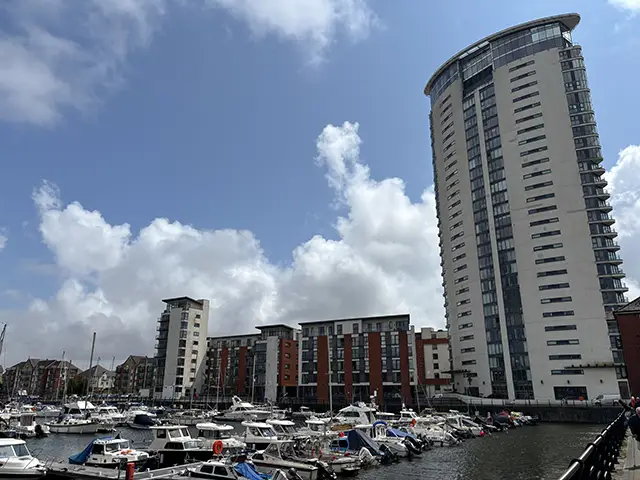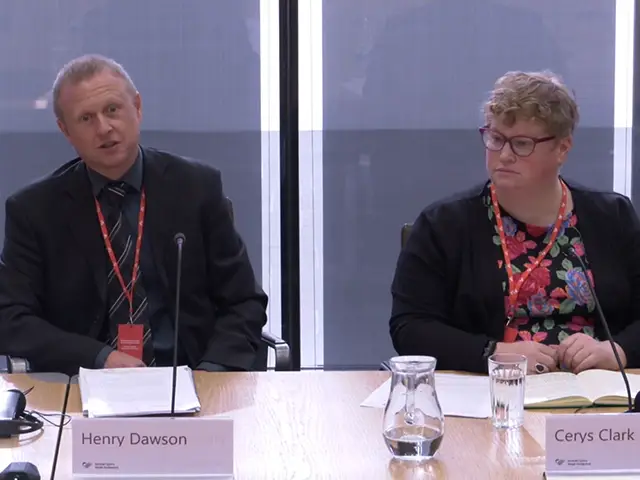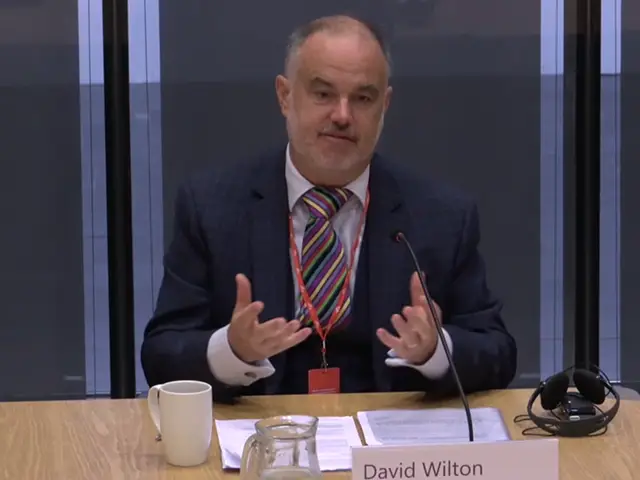Support quality, independent, local journalism…that matters
From just £1 a month you can help fund our work – and use our website without adverts. Become a member today

Housing experts have warned proposed fire safety reforms could leave vulnerable residents at risk by focusing on the building’s height rather than the people who live inside.
Witnesses broadly backed the building safety bill which was brought forward to ensure the 2017 Grenfell Tower tragedy, in which 72 people died, can never happen again.
But the Chartered Institute of Housing (CIH) Cymru warned groups like older or disabled people and single-parent households face a greater risk regardless of how tall a building is.
The bill, which aims to create clear lines of legal responsibility for managing safety risks, would create three categories of building with different restrictions for each:
- category one: highest risk, at least 18 metres or seven storeys
- category two: medium risk, 11m to 18m or five or six storeys
- category three: lower risk, less than 11m and fewer than five storeys
Cerys Clark, policy manager at CIH Cymru, told the Senedd’s housing committee that risk should be more nuanced rather than arbitrarily based on the height of a building.
‘Simple cut off’
CIH Cymru called for “lower risk” buildings to be classified as category two if they house more vulnerable people, raising the example of sheltered accommodation.
Gary Strong, of the Royal Institution of Chartered Surveyors (Rics), said: “We’ve always been quite critical of trying to determine the risk of a building by simply describing its height.”
The Rics global building standards director supported taking a distinct path to England by including buildings under 18 metres, with Wales having fewer high-rise towers.
Mr Strong, who chairs the UN’s international fire safety standards coalition, added: “But you do need to look at the risk more carefully. If you just have a simple cut off… that sometimes can miss out quite high-risk buildings which may not fall neatly into those categories.”
David Wilton, chief executive of TPAS Cymru, which represents tenants, was disappointed the bill did not include more around evacuation plans.
‘Critical’

Henry Dawson, of the Chartered Institute of Environmental Health, warned the bill will likely lead to an increase in housing costs, with rents rising as landlords seek to meet their duties.
Siân Gwenllian, Plaid Cymru’s shadow housing secretary, suggested the bill could be amended to prevent landlords from passing such costs on to renters or leaseholders.
The witnesses questioned the estimated £165m costs of implementing the bill, sounding a warning that the true cost may be higher and urging the Welsh Government to revisit it.
Ms Clark raised a risk that new building safety requirements could delay housebuilding, cautioning that the planning system is already creaking due to a lack of capacity.
In written evidence, CIH Cymru warned of a critical shortage of skilled professionals and overstretched councils putting the building safety reforms at risk.
‘Club together’
Dr Dawson also raised concerns about the inclusion of houses of multiple occupation (HMOs) within the bill potentially overlapping with the Housing Act 2004.
“As a regulator, it’s often helpful to have multiple tools you can draw upon to address health risks in these properties,” he said. “But this may be confusing for landlords and tenants.”
Mr Wilton disagreed with Wales’ 22 councils becoming “building safety authorities” under the bill, suggesting it would be better for local authorities to “club together” regionally.

Ms Clark cautioned that councils could “mark their own homework” by being responsible for regulating their own buildings but she otherwise backed keeping 22 authorities.
Dr Dawson suggested a centralised Rent Smart Wales-style model, with three joint regulatory teams below matching the areas of Wales’ fire and rescue authorities.
‘Faceless firms’
Giving evidence on September 24, Mr Wilton agreed with Lee Waters’ suggestion that the bill fails to strike the right balance by not addressing remediation of historical defects.
Mr Wilton also warned the bill could allow “faceless” firms to swerve accountability as he called for a named person to be legally responsible for safety, not a limited company.
He said tenants want a name above the door, much like premises licensed to sell alcohol.
Conservative Joel James pointed to plans for a building safety regulator in England, as the Grenfell review recommended, but for councils and fire services to take on the role in Wales.
“It isn’t how I would have done it,” Mr Wilton replied.
“It feels like we’re lumping more things on local authorities…. I think we’re going to see different interpretations and that’s slightly worrying to me.”
Support quality, independent, local journalism…that matters
From just £1 a month you can help fund our work – and use our website without adverts.
Become a member today
